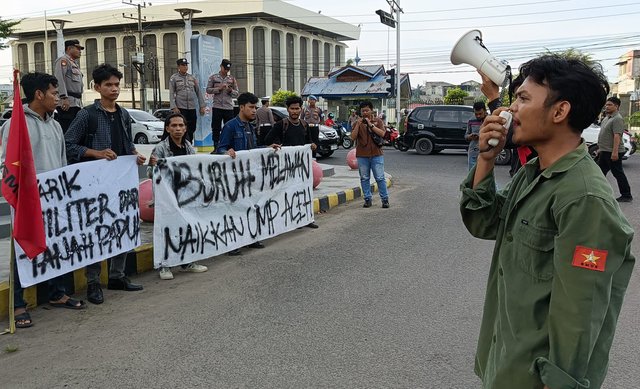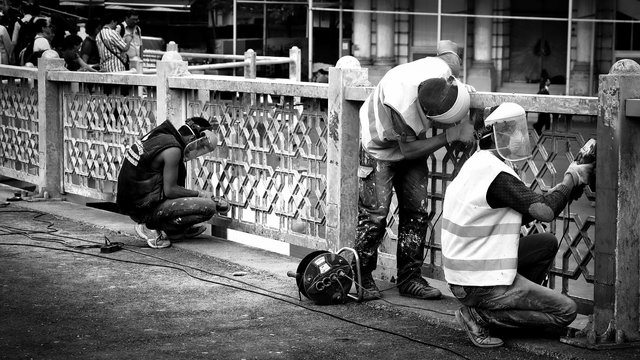Alarm of Workers' Layoffs during May Day Commemoration |

May Day Commemoration in Lhokseumawe, May 1, 2025.
International Labor Day on the first day of May this year is taking place amidst deep concern. The fate of workers is increasingly uncertain amidst economic and political conditions both at home and abroad. In the last 10 years, it seems like this is the first time that thicker clouds have engulfed our labor world, even in many countries.
The storm of layoffs (PHK) in a year seems to never stop. The Ministry of Manpower recorded that the number of workers who were laid off in Indonesia reached 18,610 in the first two months of 2025.
When compared to data from the last two years, cases of layoffs have increased drastically. In 2023 until July, 26,400 workers were affected by the storm of layoffs. The following year, it increased to more than 80,000. In fact, that was not the period of the Covid-19 pandemic which was also one of the causes of the increase in workers losing their jobs.
This year, the storm of layoffs has not stopped and could even increase. especially with the case of more than 280 thousand workers from 60 textile sector companies who are under pressure due to weak purchasing power and losing out to imported products.
Technological advances have also meant that several types of jobs are now being replaced by robots or artificial intelligence.
In the midst of the complexity of these pressures, government policies have not sided with workers at all. The sledgehammer that the government has dropped on workers through Law Number 11/2020 concerning Job Creation is now being urged to be revised immediately.
The Prabowo-Gibran regime has also not shown any siding with workers, although during the May Day commemoration the President had displayed a "gimmick" of taking off his shirt in front of the demonstration participants. Some of Prabowo's statements that are not in favor of workers are promises of no layoffs of textile workers which have not been proven, eliminating import quotas, and changes to regulations regarding the level of domestic components which are requested to be more flexible.
Regarding import quotas and the level of domestic components, if not careful, it can ensure that domestic businesses will ultimately affect the fate of workers. When domestic business productivity declines or is even forced to close, workers will ultimately suffer, in addition to entrepreneurs.
With these conditions, the number of layoffs is expected to increase in 2025. Executive Director of the Center of Economic and Law Studies, Bhimas Yudhistira Adinegara explained several main causes that caused the increase in layoffs, including investment policies that do not support existing industries, weakening purchasing power, late investment in machinery and technology in a number of industries, import policies that do not favor domestic industries, to delays in providing low-interest credit and machinery.
To prevent a spike in layoffs, the government needs to take strategic steps, including policies that support industrial sectors that have the potential for layoffs, revising regulations related to layoff requirements, so that companies do not easily terminate employment, developing import policies that protect local products, so that domestic industries remain competitive, and supporting international market expansion, so that national industries can survive amidst global pressure (data.goodstats.id).
On the internal side, workers are also asked to be more cooperative with their demands. Don't let irrational demands cause investors to flee abroad as has happened several times.[]

